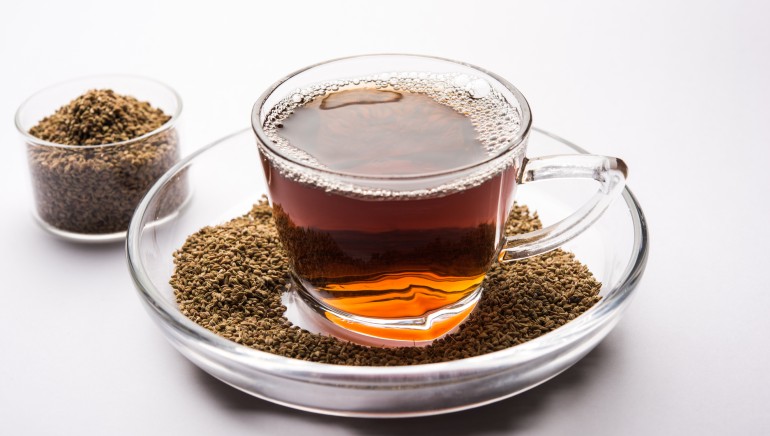Introduction
Ajwain is known for its distinctive pungent and aromatic flavor, which is similar to a combination of anise, oregano, and thyme. The seeds are the most commonly used part of the plant and are used as a spice in a variety of cuisines, including Indian, Middle Eastern, and Mediterranean.
What is Ajwain and its origins?
Ajwain, also known as carom seeds, is a popular spice widely used in Indian cuisine. It is derived from the seeds of the Ajwain plant, scientifically known as Trachyspermum ammi. Ajwain has been a part of Indian cooking for centuries and is known for its distinct aroma and flavor.
The Ajwain plant is native to the eastern Mediterranean region and is cultivated extensively in India, Pakistan, and Iran. It is a small, erect, and herbaceous plant with feather-like leaves and delicate white flowers. The seeds are small, oval-shaped, and grayish-brown in color.
Health benefits of Ajwain
Ajwain is not only used as a spice but is also valued for its medicinal properties. It contains essential oils, such as thymol, which contribute to its therapeutic effects. Here are some of the health benefits associated with Ajwain:

- Relieves Digestive Issues: Ajwain has carminative properties, which means it can help relieve indigestion, bloating, and gas. It stimulates the secretion of digestive enzymes and enhances the digestive process.
- Alleviates Respiratory Conditions: The essential oils present in Ajwain have expectorant properties, making them effective in relieving coughs and congestion. It helps to clear the respiratory passages and provides relief from asthma and bronchitis symptoms.
- Relieves Pain and Inflammation: Ajwain has analgesic and anti-inflammatory properties that can help reduce pain and inflammation associated with arthritis, rheumatism, and joint disorders.
- Improves Mental Health: The aroma of Ajwain has a calming effect on the mind and can help relieve stress and anxiety. It is also believed to improve concentration and enhance cognitive function.
- Aids in Weight Loss: Ajwain contains compounds that can boost metabolism and aid in weight loss. It can help reduce appetite and increase the feeling of fullness, thus promoting healthy weight management.
- Enhances Cholesterol Levels: When you take Ajwain for weight loss, your body’s cholesterol and triglyceride levels will decrease. Furthermore, research indicates that elevated levels of cholesterol and triglycerides raise the risk of developing heart disease.

Ajwain is a versatile spice that not only adds flavor to dishes but also offers several health benefits. Its origins can be traced back to the eastern Mediterranean region, and it has been used in traditional medicine for centuries.
Incorporating Ajwain into your diet can help improve digestion, alleviate respiratory conditions, relieve pain and inflammation, promote mental well-being, and support weight loss efforts.
“Shilajit: Unlocking Wellness and Vitality from the Himalayas”
Culinary Uses of Ajwain
Wondering how to spice up your cooking and add a unique flavor to your dishes? Look no further than Ajwain! This versatile spice is widely used in Indian cuisine and offers a distinctive taste and aroma. In this article, we will explore the flavor profile and common uses of ajwain in Indian dishes, as well as its benefits as a digestive aid and seasoning.
- Flavor Profile and Common Uses in Indian Cuisine
Ajwain, also known as carom seeds, has a pungent and slightly bitter flavor with hints of thyme and oregano. Its aroma is strong and earthy, adding depth and complexity to various dishes. In Indian cooking, ajwain is a staple spice used in both vegetarian and non-vegetarian recipes.
Common uses of ajwain in Indian cuisine include:
- Curries and Gravies: Ajwain is often added to curries and gravies for its distinct flavor. It enhances the taste of lentil dishes, vegetable curries, and meat-based gravies.
- Bread and Snacks: Ajwain seeds are commonly sprinkled on top of breads like parathas and puris before cooking, adding a touch of flavor. It is also used in savory snacks like samosas and pakoras for its aromatic taste.
- Pickles and Chutneys: Ajwain seeds are used in pickles and chutneys to enhance their flavor. They add a tangy and slightly spicy note to these condiments.

- Ajwain as a Digestive Aid and Seasoning
Apart from its culinary uses, ajwain is highly valued for its digestive properties. It is commonly used in Indian households as a natural remedy for indigestion and bloating. Ajwain seeds are known to stimulate the secretion of digestive enzymes, which aid in the digestion of food.
In addition to its digestive benefits, ajwain is also used as a seasoning in various dishes. It is often used in spice blends like garam masala and curry powder to enhance their taste and aroma. Ajwain can be dry roasted or fried in oil before being added to recipes, which further intensifies its flavor.
So, if you’re looking to add a unique and flavorful twist to your cooking, consider incorporating Ajwain into your recipes. Its pungent taste, combined with its digestive benefits, makes it a must-have spice in any Indian kitchen.
- Medicinal Properties of Ajwain
Ajwain, also known as carom seeds, is an herb widely used in traditional Ayurvedic medicine for its numerous health benefits. With its strong aroma and distinct taste, ajwain brings not only flavor to dishes but also various medicinal properties. Let’s explore the traditional uses of ajwain in Ayurvedic medicine and the potential health benefits it offers for various conditions.
While more research is needed to fully understand the extent of Ajwain’s health benefits and its specific mechanisms of action, its traditional uses and emerging scientific evidence make it a promising herb for maintaining overall health and well-being.
Bibhitaki: Uses, Health Benefits and Side effect
Ajwain Essential Oil
Ajwain essential oil has a wide range of uses and benefits. Here are some of the notable ones:
- Digestive Aid: Ajwain oil is commonly used to alleviate digestive issues such as indigestion, bloating, and flatulence. It helps reduce the formation of gas and promotes healthy digestion.
- Respiratory Support: The antimicrobial properties of Ajwain oil make it effective against respiratory infections such as coughs, colds, and bronchitis. Its expectorant properties also help in clearing congestion and relieving respiratory discomfort.
- Pain Relief: Ajwain oil can be used topically to provide relief from muscle pain, joint pain, and headaches. Its anti-inflammatory properties help reduce inflammation and soothe discomfort.
- Antimicrobial Properties: The high thymol content in Ajwain oil gives it potent antimicrobial properties. It can be used in natural cleaning products to disinfect surfaces and purify the air.
- Insect Repellent: The strong aroma of Ajwain oil acts as a natural insect repellent. It can be used to repel mosquitoes, flies, and other insects.
It is important to note that Ajwain essential oil should be used in moderation and diluted before applying topically. As with any essential oil, it is recommended to perform a patch test before using it on the skin.
Possible Side Effects and Contraindications
Ajwain is known for its numerous health benefits, but there are a few potential side effects and contraindications to keep in mind:
- Allergic Reactions: Some individuals may be allergic to ajwain. If you experience any signs of an allergic reaction, such as a rash, itching, swelling, or difficulty breathing, discontinue use immediately and seek medical attention.
- Stomach Disorders: Ajwain is often used to alleviate digestive issues, such as bloating and stomach pain. However, in rare cases, it may irritate or exacerbate existing gastrointestinal conditions. If you have a history of stomach ulcers or other digestive disorders, consult your healthcare provider before using Ajwain.
- Interaction with Medications: Ajwain may interact with certain medications, including anticoagulants, antidiabetic drugs, and antihypertensive medications. If you are taking any prescription medications, it is advisable to consult your healthcare provider before incorporating Ajwain into your routine.
Proper Dosage and Usage Recommendations
While ajwain is generally considered safe when used in moderation, it is important to follow proper dosage and usage recommendations:
- For adults: The recommended dosage of ajwain seeds is 1 to 3 grams daily. This can be consumed as a whole seed, powder, or added to herbal tea.
- For Children: Ajwain should be used with caution in children. It is advisable to consult a pediatrician for an appropriate dosage based on the child’s age and health condition.
- Pregnancy and Breastfeeding: Pregnant and breastfeeding women should exercise caution when using ajwain. It is recommended to consult a healthcare professional before incorporating it into their diet.
- Storage: To maintain the potency and freshness of ajwain seeds, store them in an airtight container in a cool, dry place away from direct sunlight.
Remember, it is always best to consult a healthcare professional or a qualified herbalist before using ajwain or any herbal remedy, especially if you have any underlying health conditions or are taking medications.
Conclusion
Ajwain has been used in traditional medicine for centuries and is now gaining recognition for its therapeutic properties. Incorporating ajwain into your diet can add flavor and enhance the nutritional value of your meals.
In conclusion, ajwain is a valuable spice that not only adds flavor to your meals but also offers numerous health benefits. By incorporating ajwain into your balanced diet, you can enjoy its versatile properties and improve your overall well-being.
